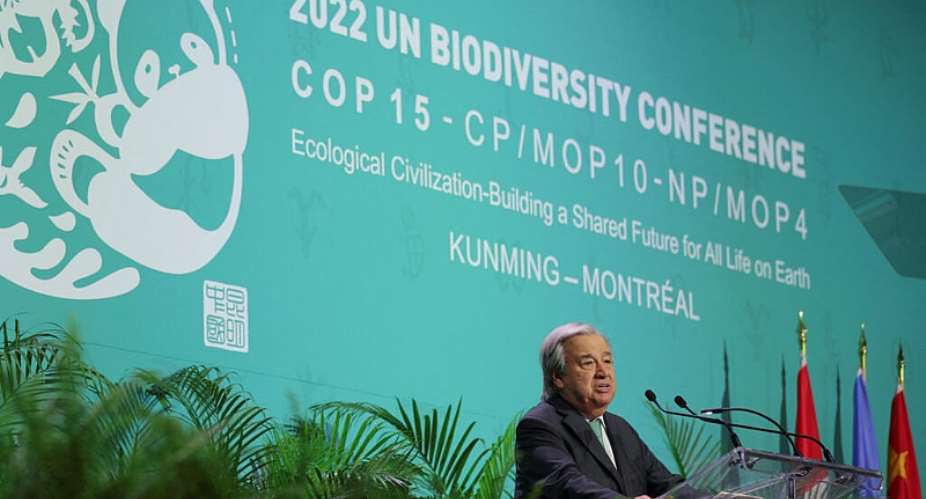UN biodiversity talks open in Montreal Wednesday in search of a deal to save the planet's forests, oceans and species from irreversible human destruction.
Scientists warn that three-quarters of the world's land and two-thirds of its seas have been degraded by human activities and one million animal and plant species are at risk of extinction.
Delegates meeting for the Cop15 summit from 7-19 December are tasked with putting together a 10-year framework to safeguard nature.
"With our bottomless appetite for unchecked and unequal economic growth, humanity has become a weapon of mass extinction," UN chief Antonio Guterres warned Tuesday.
Eye on Africa
The preservation of Africa's biodiversity – a continent in full economic and demographic growth – is seen as a major challenge for humanity.
“From mangrove ecosystems to the Congo Basin and primary forests, Africa is a vital reserve of biodiversity that is … valuable for all of humanity," said Pierre Cannet of the World Wildlife Fund.
One of the key issues for developing countries at Cop15 will be to obtain funding from rich countries to safeguard their natural heritage.
David Obura of the marine research organisation CORDIO East Africa told RFI the extraction and export of raw materials starting from colonial times has caused great damage to nature.
- Biodiversity goals crucial to saving planet, experts tell climate summit
- Humans have wiped out two-thirds of world's wildlife since 1970
“They did not use the profits generated to preserve biodiversity at that time. That is why today, not only Africa but also other countries where biodiversity is left and where it is used and degraded, are demanding that this cost be paid,” he said.
However days of pre-negotiations leading up to Cop15 have seen very little progress on key issues including finance, fuelling fears that a good deal may not be reached.
Hoped-for targets include a pledge to protect 30 percent of the world's land and seas by 2030, eliminating harmful fishing and agriculture subsidies, tackling invasive species and reducing pesticides.





 Akufo-Addo commissions Phase II of Kaleo solar power plant
Akufo-Addo commissions Phase II of Kaleo solar power plant
 NDC panics over Bawumia’s visit to Pope Francis
NDC panics over Bawumia’s visit to Pope Francis
 EC blasts Mahama over “false” claims on recruitment of Returning Officers
EC blasts Mahama over “false” claims on recruitment of Returning Officers
 Lands Minister gives ultimatum to Future Global Resources to revamp Prestea/Bogo...
Lands Minister gives ultimatum to Future Global Resources to revamp Prestea/Bogo...
 Wa Naa appeals to Akufo-Addo to audit state lands in Wa
Wa Naa appeals to Akufo-Addo to audit state lands in Wa
 Prof Opoku-Agyemang misunderstood Bawumia’s ‘driver mate’ analogy – Miracles Abo...
Prof Opoku-Agyemang misunderstood Bawumia’s ‘driver mate’ analogy – Miracles Abo...
 EU confident Ghana will not sign Anti-LGBTQI Bill
EU confident Ghana will not sign Anti-LGBTQI Bill
 Suspend implementation of Planting for Food and Jobs for 2024 - Stakeholders
Suspend implementation of Planting for Food and Jobs for 2024 - Stakeholders
 Tema West Municipal Assembly gets Ghana's First Female Aircraft Marshaller as ne...
Tema West Municipal Assembly gets Ghana's First Female Aircraft Marshaller as ne...
 Dumsor is affecting us double, release timetable – Disability Federation to ECG
Dumsor is affecting us double, release timetable – Disability Federation to ECG
